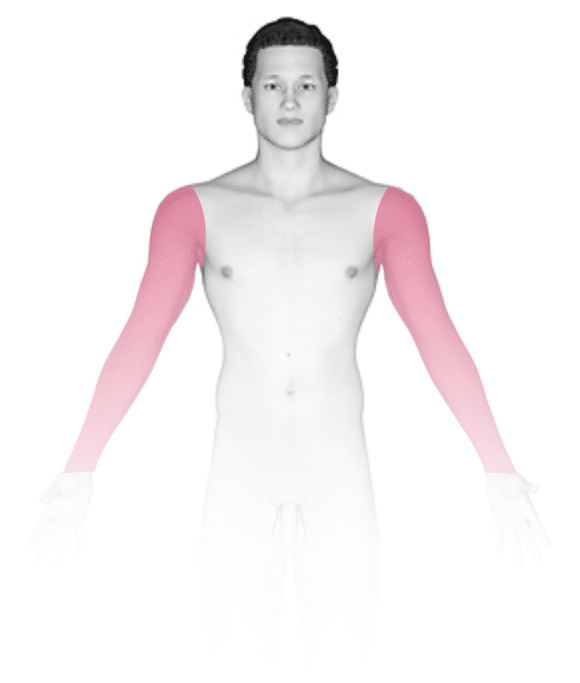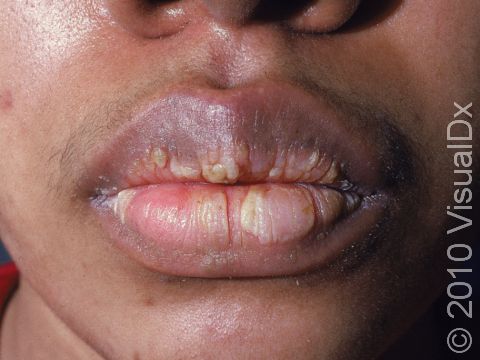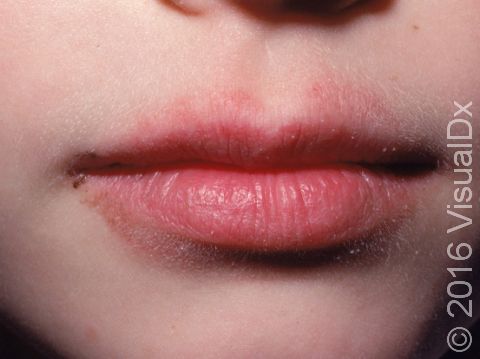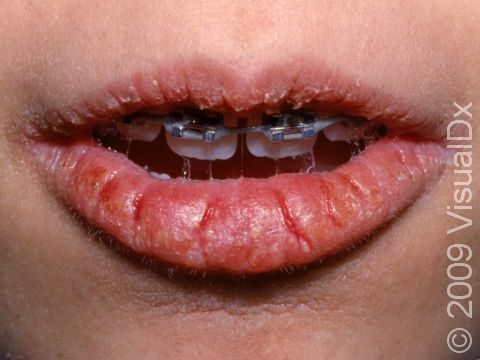Chapped Lips (Cheilitis)
People with chapped lips (cheilitis) have lips that appear dry, scaly, and may have one or more small cracks (fissures). Chapped lips are often painful, and there may or may not be redness and swelling.
- Lip-licking cheilitis is usually seen in 7–15 year olds and appears as a scaling, pink band around the mouth. This is caused by repeated licking of the lips.
- Retinoids (isotretinoin and acitretin) are the most frequent drug-induced causes of this problem. High doses of vitamin A, lithium, chemotherapeutic agents (busulfan and actinomycin), d-penicillamine, isoniazid, and phenothiazine can also cause chapped lips.
- Other possible causes of chapped lips include high fevers, environmental conditions such as cold weather, dehydration, and certain vitamin deficiencies.
Who's At Risk?
Chapped lips may be seen in people of all ages.
Signs & Symptoms
Chapped lips appears as surface skin patches (scaling) with or without cracks (fissures) and mild-to-moderate swelling of the lips.
Self-Care Guidelines
- Discontinue medications, if possible, after consulting with your child’s doctor.
- If medications are required, use petroleum jelly as often as needed.
- Avoid lip licking because this will only make the condition worse.
- Avoid “medicated” lip preparations because they increase the risk of developing an allergic reaction.
- Apply sunscreen on the child’s lips daily.
Treatments
- Lesions at the corners of the mouth (angular cheilitis) are usually treated with topical antifungals such as nystatin, clotrimazole, or econazole.
- Lip-licking cheilitis is best treated by avoid licking the lips.
- Drug-induced cheilitis is treated by avoiding the drug causing the condition, and if this is not possible, by frequent application of petrolatum (Vaseline).
- If lesions at the inner border of the lower lip (actinic cheilitis) is present, possible therapies include freezing with liquid nitrogen, treatment with topical chemotherapy such as 5-fluorouracil, or treatment with a topical drug that affects the immune system (immunomodulator) called imiquimod.
Visit Urgency
See your child’s doctor or a dermatologist when persistent, recalcitrant scaling of the lips is noted.
References
Bolognia, Jean L., ed. Dermatology, pp.1090-1091. New York: Mosby, 2003.
Freedberg, Irwin M., ed. Fitzpatrick’s Dermatology in General Medicine. 6th ed, pp.698. New York: McGraw-Hill, 2003.
Last modified on August 16th, 2022 at 2:45 pm

Not sure what to look for?
Try our new Rash and Skin Condition Finder


